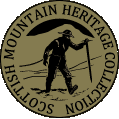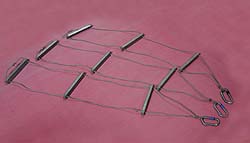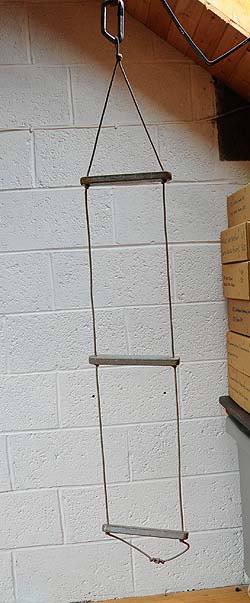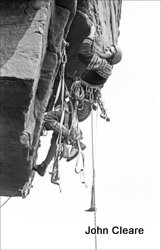
The Scottish Mountain Heritage Collection
Objects Database
Etrier - (rope & wood ladders)
Accession Number
837.2010.1(a-c)
Object Name
Etrier - (rope & wood ladders)
Created
13/05/2010
Creator
Hermione Cooper
Accession Date
13/05/2010
Brief Description
3 etrier. 3 silver painted wooden rungs on each.
Materials
wood, rope
Dimensions
127(l) x 23(w) cms
Number Of Objects
3
Colour
siver,cream
Provenance
Like many words in the English language, particularly in the world of mountaineering, 'etrier' is borrowed from another mountaineering nation, in this case France, since etrier means a ladder, or more specifically a stirrup.
Jokes are often made about mountaineers needing ladders to climb rock faces - well it's no joke, they actually use them. If a rock face proves to be unclimbable by normal means i.e. hands and feet, then a piton, bolt or something similar can be banged into the rock and the etrier clipped into it for use as a ladder. Repeat the process and away you go up the rock face.
This type of climbing is known as artificial climbing and was much in vogue in the latter part of the 1900's and while the 'art' is still practised, better forms of protection and much higher climbing standards have seen many former artificial climbs now climbed free.
These three etrier seem to be rather lovingly homemade from Viking nylon rope and wooden steps, so simple and effective. Unfortunately, we don't know who made them but thanks to whoever it was. They are very nice.
Acquisition Date
13/05/2010
Condition Check Date
13/05/2010
Rules
Spectrum : UK Museum documentation standard, V.3.1 2007
Modified
13/05/2010
Related Items
Petzl Bolts and Hangers
Rock drill
Troll Bolt Drill (minus drill head )
Troll Bolt Hangers
Troll Etrier



